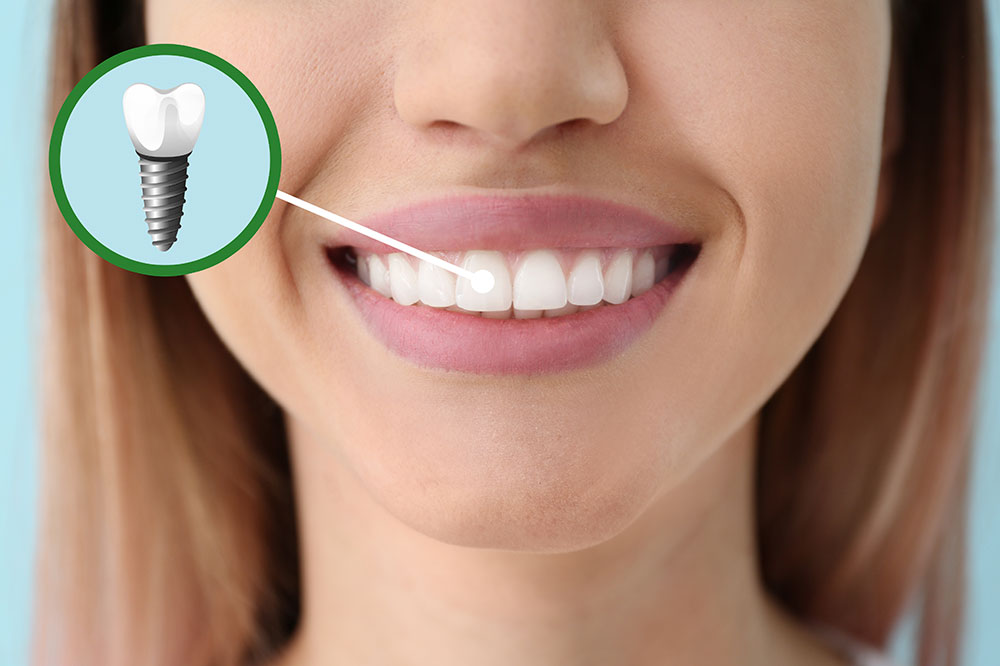Dental Implants – Its Types and Associated Costs

The ability of dentures or implants to mimic natural teeth is so impressive that it has changed millions of lives worldwide. These prosthetics are used when natural teeth have significant issues. With a little maintenance, they can be an efficient and long-lasting solution. So, if you are planning to get them yourself, the following article can help you know the factors to consider and the prices of dental implants and dentures.
How do dental implants work?
Before discussing dental implant prices, it is essential to understand how they work. Dental implants consist of three different pieces that serve distinct functions, as given below:
Implant post
Also known as the fixture, this small, cylindrical screw acts as an artificial root for the tooth.
Abutment
This piece connects the implant post and the crown. There are various types of abutments depending on the prosthetic type requiring support.
Crown
The final piece of the entire prosthetic, the crown rests on the top of the abutment. It can be made from porcelain, metal, resin, or ceramics. Porcelain or ceramic crowns look the most natural.
Costs of dental implants
Depending on one’s needs, there are four types of dental implants. Given below are average costs for the same:
Single-tooth implant
You cannot just buy a single component required for the procedure; an ‘implant’ is only the metal or ceramic screw that fits into the jawbone. The entire set comes with implants, abutments, and crowns, which have different prices. Some patients may require bone grafting or sinus lift to keep the jawbone healthy enough to stabilize an implant. This procedure may add to the cost. With these factors in mind, the approximate cost of a single tooth implant ranges between $3000 to $6000.
Multiple tooth implant
Multiple tooth implant is for cases where individuals need more than one tooth replaced, and these teeth are side-by-side. You may be able to use a bridge held in place by two dental implants, lowering the overall dental implant prices. The cost of using these implants ranges between $6000 to $10,000. As two implants support multiple adjacent teeth, this type of implant costs less than three or more individual implants.
Full mouth implants
Full mouth implants are the most expensive, but the price range is broader due to a wide variety of options. It is the costliest to replace teeth individually. While the method allows dentists to preserve existing healthy teeth, the cost of full-mouth dental implants can be anywhere between $60,000 to $90,000, depending on the complexity and number of missing teeth. If you want affordable full-mouth dental implants, you can consider implant-supported dentures with two complete arches of false teeth to replace natural lower and upper teeth. The arch is anchored to four or six implants in each jaw, and this method is also called All-on-4. These low-cost, almost permanent dentures range between $25,000 to $50,000.
Snap-in denture implants
A lso referred to as snap-on dentures, these are held together by orthodontic implants, unlike conventional dentures that may slip out of place. Snap-in dentures are more versatile, stable, and suitable for people who are missing multiple adjacent teeth. They can be fixed permanently in place or removed for cleaning purposes. Snap-on denture implants are priced between $6000 to $15,000, depending on the number of missing teeth.
Cost breakdown for full or partial dentures or dental implants
Whether you choose to get dentures or dental implants, you have to undergo numerous procedures to decide what is the most effective solution. Imaging techniques like X-rays and CT scans typically cost anywhere between $350 to $600. Bone grafting is required for proper placement of implant and costs between $200 to $1000, depending on the complexity. Dental implants and their associated materials cost an estimated $3000 per tooth. Keep in mind that the prices vary from clinic to clinic. Full denture costs are pricier, possibly requiring you to shell out up to $ 50000 approximately. There are several other procedures to consider depending on an individual’s requirements. It is essential to research thoroughly and be aware of additional costs to ensure you have a sufficient budget for the procedure.
Factors affecting the cost of dental implants
Now that we are aware of the types of dental implants and their associated costs, here are the factors to consider before selecting dentures or implants:
Experience
Top-notch professionals and experienced dentists might charge more, but their experience is likely to ensure smooth procedures with minimal risks.
Materials
This is one of the most important factors affecting dental implant cost. Implants made from zirconium or titanium are more expensive due to their durability and decreased risk of wear and tear.
Additional procedures
Imaging scans, bone grafting, and tooth extraction, among others, also impact the cost of getting dental implants—the more complex the placement of the dental implants, the costlier the procedure.
Location
The location of the dentist’s clinic and the laboratory they are associated with impact the overall cost of dental implants. Additionally, the cost for full dentures, plus partial or full implants, will vary from state to state. Hence, it is best to check beforehand to ensure that the city you live in offers affordable procedures.
Individual cases
Dental implants are highly customized. Hence, it is impossible to get a fixed quote across cases. It is imperative to discuss your issue with a dentist and get an estimate of your customized procedure.
Are dental implant costs covered under insurance?
This is one of the most prevalent concerns among people looking to get dental implants. Even though implants have gained popularity in recent times, insurance providers still consider them to be elective procedures. While you may have to pay a considerable amount out-of-pocket, your insurance may cover a small percentage of the total bill. You may also get coverage for associated procedures.
You can use accounts like flexible spending accounts (FSAs), health savings accounts (HSAs), and health reimbursement accounts (HRAs) to reimburse the expenses incurred during a dental implant procedure.






